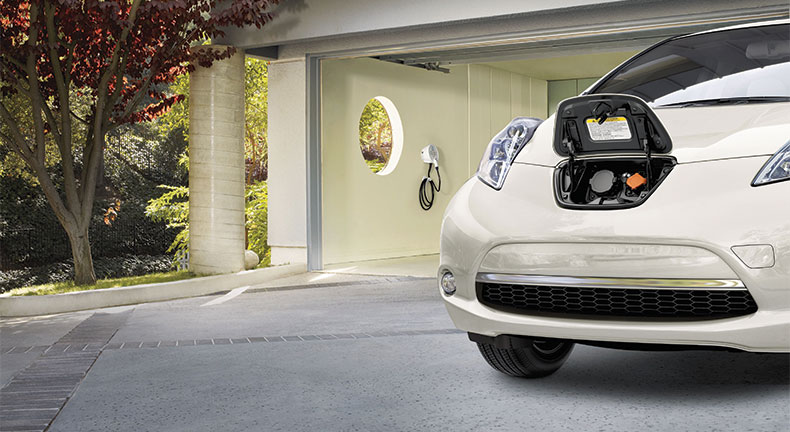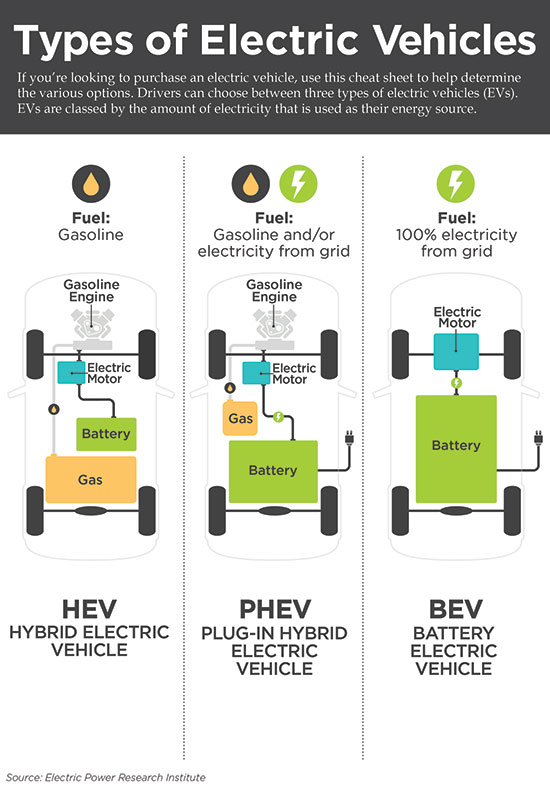As their name implies, electric vehicles are powered — in all or in part — by electricity. All-electric vehicles are charged by plugging the vehicle into an electric power source, like an outlet or a special charging station. The energy is stored in a battery, and the battery powers the vehicle when it’s in use. Hybrid electric vehicles are powered by a combination of an electric motor and an internal combustion engine that runs on gasoline.
What are the benefits?
Electric vehicles (EVs) offer numerous benefits over traditional gas-powered vehicles, including increased energy efficiency, reduced environmental impact and lower fuel and maintenance costs.
According to the Electric Power Research Institute (EPRI), EVs can be more than twice as energy efficient, save 70 percent in fuel costs, and reduce carbon dioxide emissions by 75 percent compared to internal combustion engines. And the good news is that electricity continues to get more efficient as a power source and its prices are more stable than fossil fuels.
Other considerations?
Drivers often cite “range anxiety” as a primary barrier to adopting electric vehicles, but as electric vehicles continue to make up more of the auto market, so too will charging stations. Additionally, battery technology is improving the number of miles electric vehicles can travel on an electric charge, expanding the vehicles’ use from day-to-day commuting and activities to transit and travel.
Union Power Cooperative strives to provide our members with the knowledge needed to make informed energy decisions. Visit our website at union-power.com/electricvehicles for more information and to find out if an electric vehicle is right for you.



